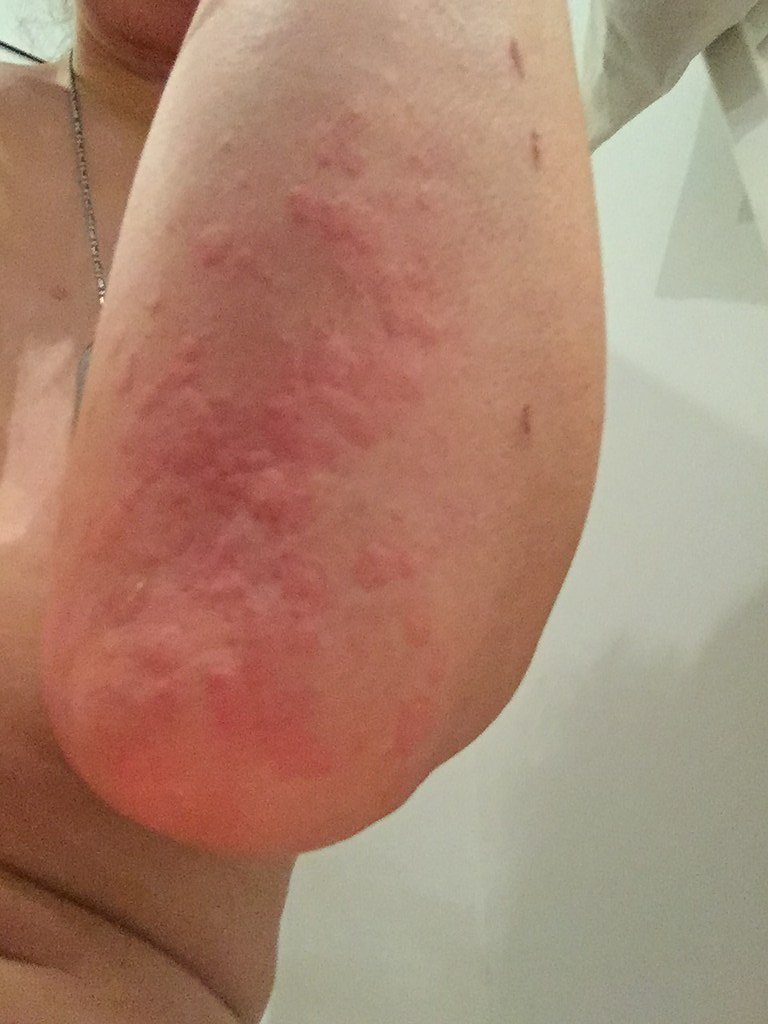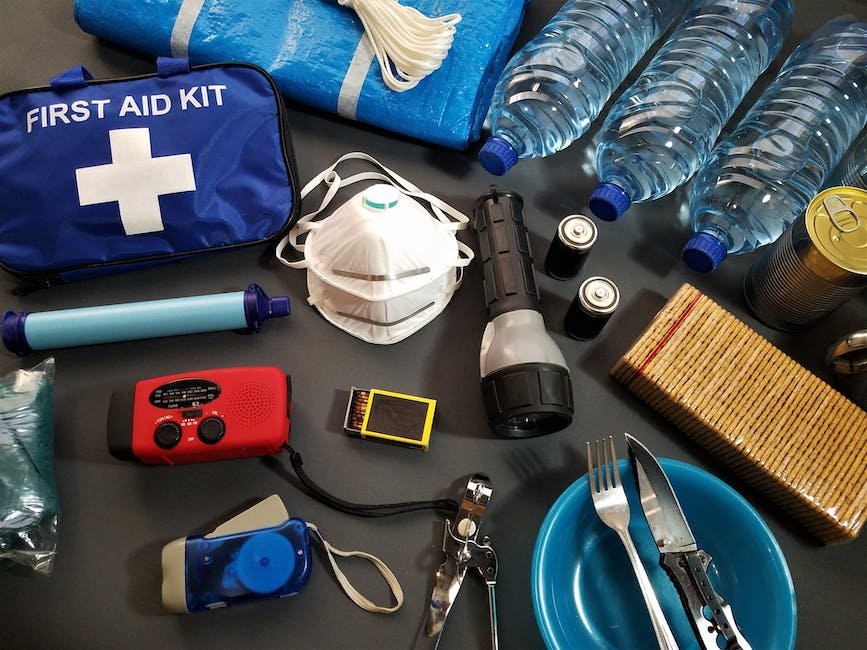Now Reading: How to Treat Allergic Reactions in the Wild
-
01
How to Treat Allergic Reactions in the Wild

How to Treat Allergic Reactions in the Wild
Nature is an unpredictable muse, captivating us with its breathtaking landscapes and mysterious wonders. But amidst the allure lies a peculiar secret: hidden within the wilderness, allergic reactions can swiftly transform a serene escapade into a frenzied struggle for survival. When we embark on outdoor adventures, we must be equipped not only with enthusiasm, but also with knowledge on how to subdue the unexpected sting of nature’s veiled adversaries. Whether it be a bee’s venomous assault or an innocent-looking fern bestowing an unwelcome itch, understanding how to treat allergic reactions in the wild is an invaluable skill that may just save the day. So, grab your backpack and let us explore the diverse arsenal of remedies tucked away deeper than the lush forests themselves.
Table of Contents
- Recognizing the Symptoms of Allergic Reactions in the Wild
- Key Steps to Take When Faced with an Allergic Reaction Outdoors
- Essential Emergency Supplies for Treating Allergic Reactions on the Go
- Natural Remedies and First Aid Techniques for Alleviating Wilderness Allergies
- Expert Tips for Preventing and Managing Allergic Reactions During Outdoor Adventures
- Q&A
- Future Outlook

Recognizing the Symptoms of Allergic Reactions in the Wild
When venturing into the great outdoors, it’s essential to be aware of the potential dangers and allergic reactions that could occur. By , you can take necessary precautions to stay safe and treat any issues promptly.
Allergic reactions can happen due to various factors in the wilderness, such as insect bites, plants, or contact with certain animals. It’s crucial to be familiar with the common symptoms associated with allergic reactions, which may include:
- Itching and rashes: Notice any unusual itching or development of hives or rashes on your skin? It could be a sign of an allergic reaction.
- Sneezing and runny nose: Continuous sneezing and a runny nose, especially in response to specific plants or environmental triggers, might indicate an allergic reaction.
- Swelling and redness: If you experience swelling on your face, lips, tongue, or another part of your body, along with redness or tightness, it could be a sign of an allergy.
- Difficulty breathing: Be cautious if you’re having trouble breathing or experiencing tightness in your chest, as this could indicate a severe allergic reaction known as anaphylaxis.
When you notice any of these symptoms or suspect an allergic reaction, it’s important to seek help quickly. Carry antihistamines or other medications that your doctor recommends to alleviate mild symptoms. For severe reactions, don’t hesitate to contact emergency services or your local healthcare professional immediately. Being aware of the symptoms of allergic reactions in the wild can save you from unnecessary discomfort and ensure your safety during your adventures.

Key Steps to Take When Faced with an Allergic Reaction Outdoors
Emerging outdoor enthusiasts, take heed! Allergic reactions can unexpectedly occur while you’re out in nature, but worry not – we’ve got you covered with some essential steps to ensure your safety and peace of mind.
1. Stay calm and assess the situation: Pause for a moment and evaluate your symptoms. Are they mild or severe? Do you know what triggered the reaction? Remaining calm will help you make rational decisions.
2. Remove yourself from the allergen: If you suspect a specific trigger, try to quickly distance yourself from it. Stepping away from pollen, an insect nest, or any other potential allergens can help mitigate the reaction.
3. Administer appropriate medication: If you carry prescribed medication such as an epinephrine auto-injector, promptly use it according to the instructions. This can help alleviate severe symptoms and buy you the time needed to seek medical assistance.
4. Reach out for help: If your symptoms persist or worsen, do not hesitate to call emergency services or ask nearby individuals for assistance. Inform them about your condition and any allergies you may have, as this will aid them in providing appropriate medical care.
5. Seek medical attention: Even if your symptoms improve, it is crucial to consult a healthcare professional. They can assess the severity of your reaction, provide further treatment if necessary, and guide you on future preventative measures.
The unpredictable nature of allergies can catch anyone off guard, but by following these key steps, you can handle allergic reactions like a pro and continue enjoying the magnificent outdoors with peace of mind!

Essential Emergency Supplies for Treating Allergic Reactions on the Go
When it comes to allergies, being prepared is key. Allergic reactions can happen anytime, anywhere, and having the necessary emergency supplies at hand can make all the difference. Here are some must-have items to include in your allergy kit for treating allergic reactions on the go:
1. Antihistamines:
Antihistamines are a vital component of any allergy kit. These medications help relieve symptoms such as itching, swelling, and hives caused by allergic reactions. Non-drowsy antihistamines like cetirizine and loratadine are great options to keep you alert while providing quick relief.
2. Epinephrine Auto-Injector:
For people with severe allergies, an epinephrine auto-injector could be a life-saver. This easy-to-use device delivers a dose of epinephrine, which can help reverse severe allergic reactions like anaphylaxis. Remember to always carry this with you and ensure it is within its expiration date.
3. Saline Solution:
Saline solution is incredibly useful for flushing out allergens from the eyes and nasal passages. Whether it’s pollen, dust, or pet dander causing irritation, a saline solution can provide instant relief. Carry a small bottle or saline nasal spray for handy use on the go.
4. Emergency Contact Information:
It’s crucial to have your emergency contact information readily available in case of an allergic reaction. Include the contact details of your doctor, emergency services, and any relevant medical information. Write down these details and store them in your allergy kit for easy accessibility and peace of mind.
With these essential supplies in your allergy kit, you can confidently tackle allergic reactions wherever you go. Remember, it’s always wise to consult with your healthcare provider to determine the specific supplies that best suit your needs and allergies. Stay prepared, stay safe!
Natural Remedies and First Aid Techniques for Alleviating Wilderness Allergies
In the world of outdoor adventures, encountering allergies can put a damper on your wilderness experience. Thankfully, nature provides us with various remedies and first aid techniques to alleviate these bothersome symptoms. Whether you suffer from pollen, insect bites, or plant-induced reactions, here are some tips to help ease the discomfort:
- Nettle Tea: Boasting natural antihistamines, nettle tea can work wonders to relieve allergic reactions. Steep 1-2 teaspoons of dried nettle leaves in boiling water for 5-10 minutes. Strain, sip, and let the soothing properties of nettle take effect.
- Cool Compress: To soothe itchy insect bites or irritated skin, apply a cool compress. A damp cloth soaked in cold water or ice wrapped in a cloth can provide instant relief.
- Aloe Vera Gel: An outdoor enthusiast’s best friend, aloe vera gel possesses anti-inflammatory properties that can ease redness and swelling caused by allergic reactions. Apply a thin layer of pure aloe vera gel to the affected area for quick cooling relief.
Remember, prevention is crucial, so consider wearing long-sleeved clothing, using insect repellent, and avoiding highly allergenic areas when possible. By being prepared and utilizing these natural remedies, you can keep wilderness allergies at bay and fully enjoy your adventures in the great outdoors.
Expert Tips for Preventing and Managing Allergic Reactions During Outdoor Adventures
As outdoor enthusiasts, we all love exploring nature and embarking on thrilling adventures. However, for those with allergies, outdoor activities can sometimes become a source of worry. But fear not! We’ve gathered expert tips to help you prevent and manage allergic reactions so you can fully enjoy your outdoor expeditions.
Know your triggers: Understanding what triggers your allergies is the first step in prevention. Whether it’s pollen, insect bites, or certain plants, identify the substances that cause your reactions. This knowledge will help you plan your outdoor activities accordingly and take necessary precautions.
Check the weather: Keep an eye on pollen forecasts or local weather reports that provide pollen levels. On high pollen days, consider planning your trips for a different day or time when the levels are lower. This reduces the risk of coming into contact with allergens that may trigger your symptoms.
Carry essential medications: Always pack your allergy medications, such as antihistamines or epinephrine auto-injectors, in a waterproof container. If you are prone to severe allergies, ensure that your adventure buddies are aware of your condition and know how to administer any necessary medications in case of an emergency.
Protective clothing: Wear appropriate clothing to minimize exposure to allergens. Consider long-sleeved shirts, pants, gloves, and hats to cover your skin. Applying a hypoallergenic sunscreen and using insect repellents can also offer an extra layer of protection.
Stay hydrated: Proper hydration boosts your immune system, helping to alleviate allergy symptoms. Carry plenty of water and drinks that keep you hydrated throughout your outdoor adventure.
Be cautious with food: If you have food allergies, it’s essential to be mindful of your meals during outdoor activities. Prepare your own meals or thoroughly inspect food labels to avoid consuming any allergens that may trigger reactions.
Remember, prevention is key when it comes to managing allergic reactions during outdoor adventures. By following these expert tips, you can minimize the risk of unwanted symptoms, allowing you to fully immerse yourself in the beauty of nature and create unforgettable memories along your journey. Happy exploring!
Q&A
How can I determine if someone is having an allergic reaction while in the wild?
Look out for symptoms such as hives, itching, swelling, difficulty breathing, or a rapid pulse. These are common signs of an allergic reaction.
What are some common causes of allergic reactions in the wild?
In the wild, common causes of allergic reactions include insect bites/stings, certain plants, exposure to animal dander, or even elements in the environment such as pollen or mold.
What should I do if someone has a severe allergic reaction in the middle of nowhere?
First, if the person has a prescribed epinephrine auto-injector, administer it immediately. Call emergency services, keep the person calm, and monitor their breathing and pulse until help arrives.
How can I prevent allergic reactions while in the wild?
Pack medications like antihistamines if you have known allergies. Avoid contact with potential allergens, stay updated on local environmental conditions, wear protective clothing, and be cautious around unfamiliar plants or creatures.
Is it safe to use natural remedies to treat allergic reactions in the wild?
While natural remedies like aloe vera or certain essential oils might offer temporary relief for mild reactions, they are not a substitute for proper medical treatment. It is best to seek professional medical care, especially for severe reactions.
What if I don’t have access to medical facilities in the wild?
In such situations, focus on stabilizing the person and keeping them comfortable. Treat symptoms with available resources like over-the-counter antihistamines or pain relievers. It is essential to seek medical help as soon as possible.
Are there any precautions to take after an allergic reaction in the wild?
It is crucial to identify the allergen that caused the reaction to prevent future incidents. Inform your healthcare provider about the reaction and consider carrying an emergency action plan, including necessary medications, during all subsequent wilderness activities.
Future Outlook
In the untamed embrace of Mother Nature, one must always be prepared for unexpected encounters that may turn a harmonious expedition into a battle against allergies. Yet fear not, for armed with knowledge, quick thinking, and a touch of wilderness finesse, one can safely navigate the wild with an arsenal of remedies to combat allergic reactions.
Although we may find ourselves miles away from civilization, it is reassuring to know that preventing allergic reactions in the wild is possible with a few simple precautions. Stay vigilant and research the flora and fauna of your chosen destination prior to setting foot in this untamed symphony. Make note of any known allergens prevalent in the area, ensuring that you pack the necessary medications and any prescribed epinephrine auto-injectors. Remember, a little preparation can make all the difference when it comes to preserving the serenity of your wilderness escape.
In the unfortunate event that an allergic reaction takes hold while in the wild, maintaining a calm demeanor is paramount. With a level head, swiftly remove yourself from the source of the allergen, protecting yourself from further exposure. If deemed essential, self-administer any prescribed medication, paying close attention to proper dosage and application.
Nurturing the allure of the wild is a delicate act, and being cautious of the remedies we employ is vital to ensure harmony with our surroundings. Whenever possible, resort to natural remedies found within your surroundings, such as aloe vera for soothing skin irritations or herbal teas to alleviate mild allergic symptoms. By embracing the healing power of the wilderness, we create a symbiotic relationship, where nature’s offerings can truly become our allies in combating allergic reactions.
Remember, however, that nature’s pharmacy is vast and intricate, and its remedies aren’t always a universal cure. If symptoms persist or worsen, reaching out to professional help becomes a non-negotiable step. In the vastness of the wild, medical assistance may be a distant reality, but through satellite communication or partnerships with fellow adventurers, one can bridge the gap between the untamed and the modern world.
So, as you embark on your next backcountry adventure, do so with a newfound confidence in your ability to tend to allergic reactions in the wild. Armed with preparation, composure, and perhaps a little dash of Mother Nature’s own brilliance, you can navigate the vastness of untamed beauty while keeping allergies at bay. Embrace the wild, respect its wonder, and let your endeavors be marked by an indomitable spirit, ever prepared to conquer whatever nature throws your way.
As an affiliate, my content may feature links to products I personally use and recommend. By taking action, like subscribing or making a purchase, you’ll be supporting my work and fueling my taco cravings at the same time. Win-win, right?
Want to read more? Check out our Affiliate Disclosure page.





